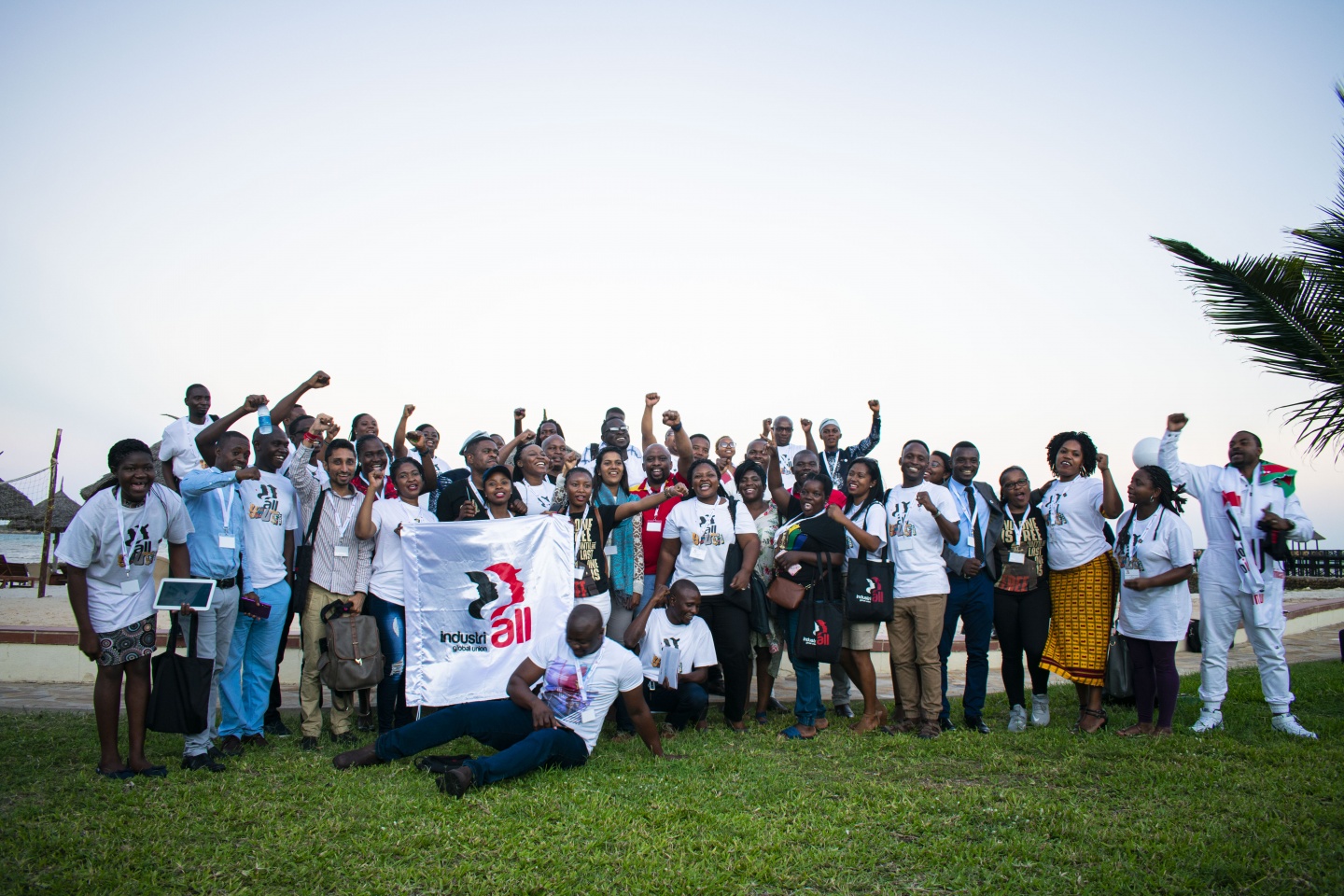8 October, 2019Young workers from IndustriALL Global Union affiliates from across the Sub Saharan Africa region met for the first time in Dar es Salaam, Tanzania, on 7 October. They created a structure and elected office bearers.
The 44 delegates from 11 countries were joined by guests from a number of organizations, including the ILO, BWI, UNI Global Union, SASK and the Friedrich Ebert Stiftung, which sponsored the event.
The delegates displayed spirit and enthusiasm, frequently breaking into call and response chants celebrating union power, and songs to create a sense of unity and movement. They sang songs from the trade union struggle, including Asinamali (“We don’t have any money”), Asifuni Agenda yama Capitalist (“We don’t want the capitalist agenda”) and My Mother was a Kitchen Girl.
A panel discussion was held with participants exploring different aspects of youth organizing in their countries.
“Youth are marginalized. People put us down, not by the power of their arguments, but with the weight of their years,”
said Tafadzwa Eustace Chidhindi of Zimbabwe.
Tolulope Fagbamigbe of Nigeria pointed out that young women workers are doubly oppressed by ageism and patriarchy. When there is an invitation to a youth meeting, men old enough to be their fathers are first in line to attend.
After a presentation on the ILO Centenary Declaration by Mban Kabu of ILO ACTRAV, participants discussed how the future of work was likely to play out in the African context and developed proposals for young workers marginalized by a growing informal sector.
They felt that their familiarity with new technology meant that they could benefit from new forms of work. Sweshta Soomungull of Mauritius asked:
“Since when have unions been afraid of challenges?”
There were debates about the suitability of union structures for organizing young workers. Iris Nothofer of the FES Trade Union Competence Centre Sub-Saharan Africa raised a provocative question: is there a conflict between union democracy and efficiency?
“Democratic structures and procedures are necessary but not sufficient. We need vibrant rank and file networks,”
she concluded.
IndustriALL youth coordinator Sarah Flores spoke about the importance of youth developing autonomous structures and their own way of working. The participants divided into three groups to develop their policy and the structure.
They identified the following priorities:
- Formulate a regional structure
- Develop youth leadership
- Develop a union education programme for youth
- Formalize alliances with civil society
- Including youth in collective bargaining
- Integrate youth into industrial policy
Rose Omamo, general secretary of AUKM in Kenya, led the election process.
The vote was as follows:
Chair: Emmanual Adjei-Danso of Ghana
Vice chair: Christian Rutendo Ranji of Zimbabwe
Secretary: Victor Notaye Ngwane of South Africa
Committee:
Sweshta Soomungull of Mauritius
Tolulope Fagbamigbe of Nigeria
Prisqua Miharilala of Madagascar
Maria John Bange of Tanzania
IndustriALL regional secretary Paule Ndessomin said:
“I am impressed by the passion and commitment we saw here today. The future looks bright! Now that a structure has been created, young unionists can work together effectively.”










